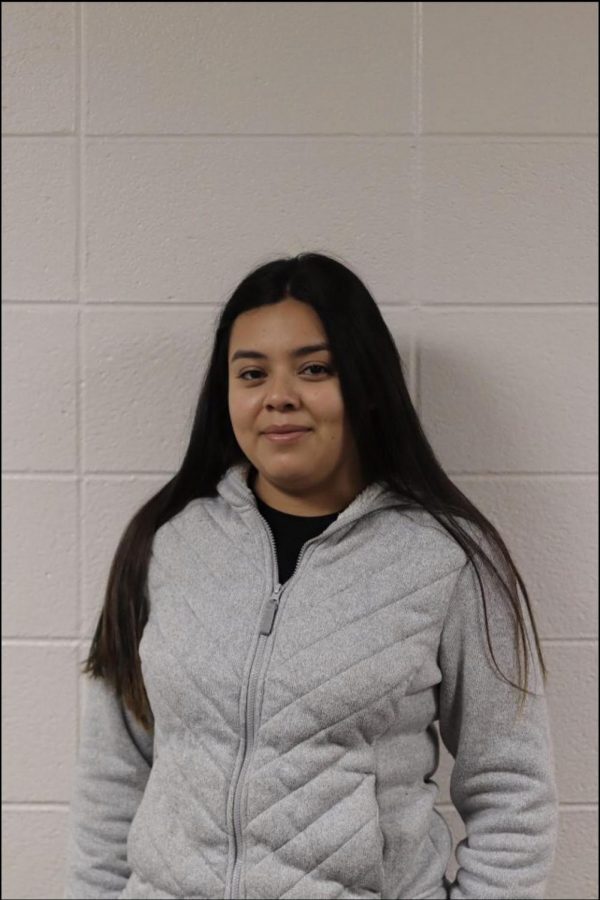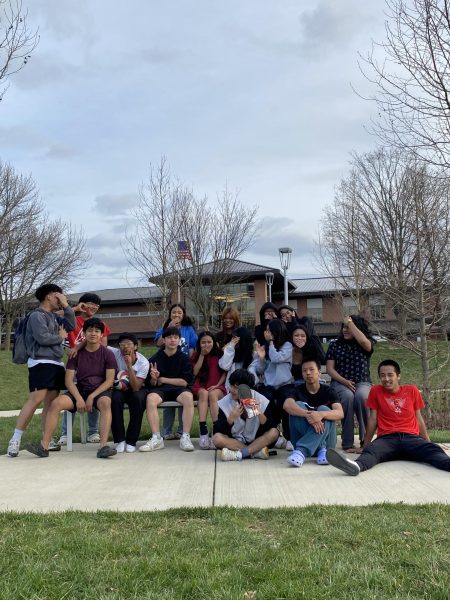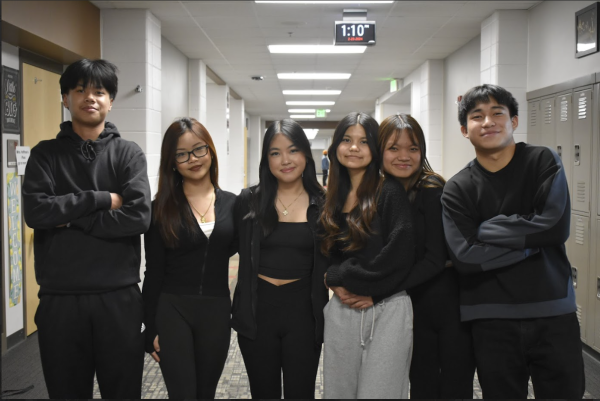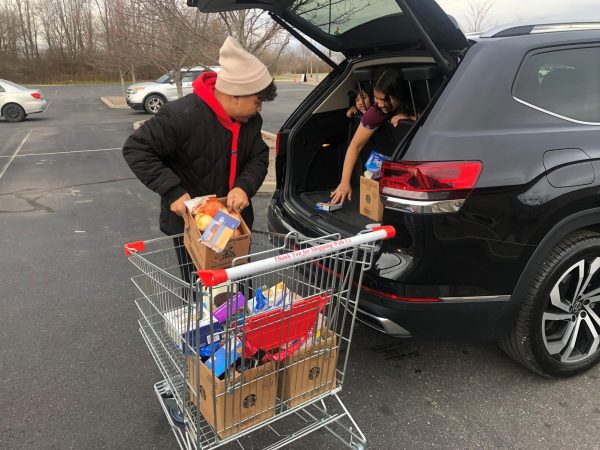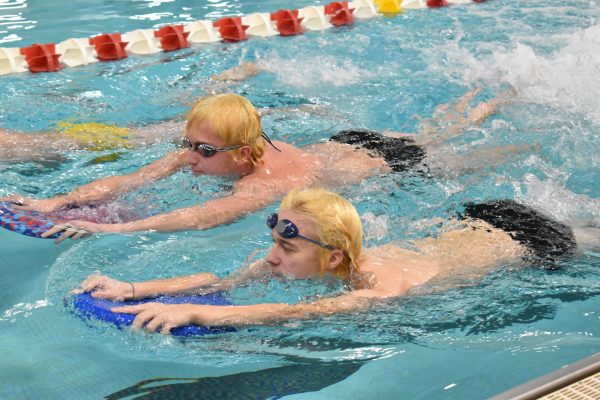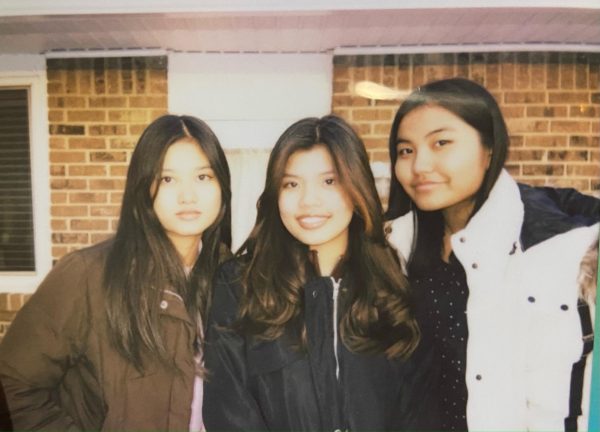Crossing borders
How SHS senior Lesly Navarro dealt with living in America without her parents
Until last year, senior Lesly Navarro had been living in Mexico since she was 8 years old. She was born in the U.S., but she chose to go back to Mexico when her father lost his job. However, last year, Navarro chose to come back to the U.S. She knew that she could pursue a better life here, and she could receive a higher quality education.
Navarro has spent the end of her junior year and the first part of her senior year living in the U.S. without her parents because they are not citizens. She found it really difficult when she first moved, but she has slowly become acclimated.
“I got here on October 12,” Navarro said. “I came to school on November 11, and it was a little bit hard. Math was so hard for me, and everything, and I was studying too hard.”
Navarro has faced many challenges since moving back to the U.S., the first of which was relearning the English language. She also had to work harder than most of her peers to keep up in her classes.
“I forgot English,” Navarro said. “When people talked to me, I didn’t know how I was going to answer them or talk to them. I was studying hard so that I could understand everything, and had to learn a little bit more of English too.”
Because of the language barrier, it was sometimes hard for Navarro to fully participate in school. Social studies teacher Reid Fawcett thinks that sometimes it can be difficult to get her to engage with the class.
“Lesly is a little quiet,” Fawcett said. “At least to me, she comes off as a bit shy. It is a little bit hard to get her to talk sometimes in class, but the good thing is, she does a really nice job during independent work.“
She also faced more than just academic hardships when she first got here. She found it hard to make new friends and get integrated back into American culture.
“It was a little bit difficult,” Navarro said, “because I didn’t have friends, so it was all day in my house without doing anything.”
EL Department Chair and teacher Amy Peddie teaches Navarro’s English as a New Language class. She thinks that relearning American culture was one of the hardest parts of Navarro moving back.
“She didn’t really get to know American culture when she was little,” Peddie said. “She left the country when she was so young, and so just coming to live in the United States, even though she’s a citizen, it’s really hard because she doesn’t understand the culture.”
Though she is able to see and talk to them every day through FaceTime, Navarro has had a very difficult time leaving her friends and family in Mexico, especially her parents.
“I was sad because I was not going to see them anymore,” Navarro said. “And I didn’t know how it was going to be over here. And maybe it was going to be so hard, and I would need my parents. And maybe I’m not going to have friends, and I’m going to need my friends.”
Despite Navarro having a hard time adjusting to this new life, she has also been successful in many aspects.
“I think Lesly has done a fantastic job adjusting to this hybrid, in-person and virtual classroom…,” Fawcett said. “She has done a really nice job of using time management skills to complete all tasks that are assigned to her.”
With the new opportunities given to her by moving to the U.S., Navarro also has a good idea for her plans in the future. She hopes to pursue a career in criminology after high school.
“There’s a lot of things happening right now in Mexico, and a lot of bad men,” Navarro said. “I want that career so that I can help my country with that.”
Coming from a different country and having to understand the process of applying for college in the U.S. can be difficult. This is why Peddie thinks that her class, ENL 4 (English as a New Language 4), which teaches seniors how to go through that process, will be very helpful to Navarro, and other students moving from different countries.
“It was really important for me that she takes that class and gets that extra support,” Peddie said. “About how to fill out the application, how to write essays for the college that you are getting into, how to understand financial aid and apply for FAFSA. All those things are things that are unique to our culture, and we don’t necessarily do a good job teaching people how to do those things if they come from a different culture.”
Though Navarro has had challenges, she has worked hard to move past them and has impressed her teachers.
“She’s been very hardworking,” Peddie said. “She asks lots of questions, she knows what she wants to do in her future… and because she has that focus, even though her language isn’t the strongest, her hard work and her ethic have made up for not being a native speaker of English.”
Navarro knows that she has made a lot of progress while she has been here as well and feels she will continue to improve.
“It has changed a lot,“ Navarro said. “When I first got here, I didn’t have a job. And now I have one. I didn’t have friends, but now I have friends. I’m just getting used to it.”
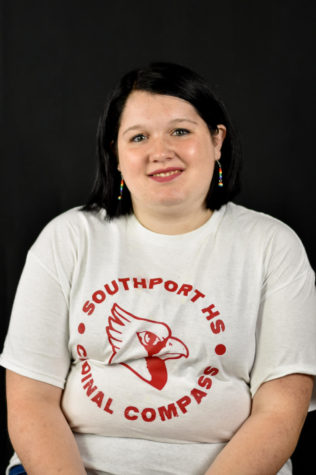
Hey everyone! My name is Megan Rogers and I am one of the Managing Editors of The Journal this year! I will be working with our News, Sports, Culture and...


